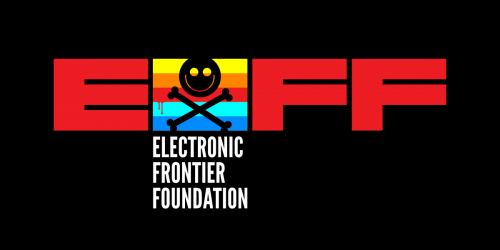In January, our friend Aaron Swartz killed himself. Aaron was unable to carry on against an overzealous government prosecution enforcing a grossly unfair and outdated law. We, and millions of others around the world, were saddened beyond words. Aaron was prosecuted for using legendary academic institution Massachusetts Institute of Technology (MIT)’s open network to download articles from JSTOR, the digital library that sells scholarly articles, largely funded by public tax dollars, back to the public at something like $5-12 per article. Academic institutions like MIT, however, don't pay for each article but instead pay subscription fees that give access to everyone within their communities, including visitors like Aaron.
In light of Aaron's death, we and many others (including prominent alumni) have asked whether MIT could have done more to halt or limit his prosecution. Even JSTOR publicly and privately opposed the prosecution, so MIT had an easy path to follow, but chose not to. So we were somewhat heartened when we heard that MIT was appointing esteemed computer science Professor Harold Abelson to do a thorough report. We have tremendous respect for Professor Abelson and waited patiently for he and his colleagues to complete their work. We hoped that at last someone would talk clearly about why MIT hadn’t stirred itself to stand up against a prosecution that targeted a man the university should have been proud to embrace – and against a law that would doubtless, sooner or later, be used to target or chill others within the MIT community.
Professor Abelson's report was released this week, and we are deeply disappointed. Instead of looking critically at what MIT did and criticizing it where warranted, the report simply recites the same old excuses some members of the MIT community have been giving for the MIT’s failure to act. The most criticism it can muster is to gently chide MIT for being “neutral” when an educational institution of its stature and importance might have considered playing a “leadership” role.
Others have given good criticisms of MIT’s choice to remain “neutral,” pointing out that neutrality wasn’t the right position for MIT to take here. We strongly agree. MIT could have pointed out that Aaron was likely authorized to use JSTOR given MIT’s open campus, something the head of the Media Lab asked it to do in a letter in June 2011, and it actually did in the David LaMacchia case in 1994. MIT also could have appealed to higher ups in the U.S. Attorneys office to investigate what was obviously a prosecutor who was overreaching. MIT’s own conversations with the prosecutor, where he likened MIT to a “rape victim,” claimed that the JSTOR articles cost "millions of dollars" to create and falsely accusing Aaron of conducting a “wild Internet campaign” were clear enough signals. MIT certainly had the capability to reach out to U.S. Attorney Ortiz or trigger any of the other processes by which a prosecutor’s actions can be investigated. Worse, the assertion that this and similar conversations led MIT to decide that it could actually hurt Aaron by standing up for him is simply incredible.
But based on the report itself, we don’t think MIT was actually even “neutral,” by any reasonable definition of the word. Apparently MIT assisted the government from the very beginning -- offering documents to the prosecution before being subpoenaed and allowing multiple interviews of MIT personnel, including without having counsel present. It did nothing similar for the defense, which it didn't even seriously talk to until June, 2011, five months after Aaron's arrest and then shined on for months at a time thereafter. In a particularly heart-wrenching example, the report notes with mild concern that MIT’s general counsel and outside specialist counsel incorrectly assumed the government would give documents MIT provided to the prosecution to the defense in a timely fashion. That’s not even true -- federal law doesn't require all documents to be turned over, just those deemed exculpatory, material to the defense, or that the government intends to use at trial. MIT’s inside or certainly its outside criminal counsel should have known this. But regardless, Aaron’s defense counsel fought with the prosecution to obtain even the required disclosures, which were essential to Aaron's defense, up until Aaron’s death. The government’s gamesmanship with documents greatly increased the pressure on Aaron and MIT couldn't even be bothered to call the defense to check on its faulty assumptions.
Eventually, the report admits that even the semblance of neutrality was abandoned when the defense filed motions to suppress some evidence and had the audacity to criticize MIT’s investigative processes. Yet the report just meekly states that the motions “had the effect of aligning MIT’s interests more with the prosecution than with the defense.” At that point, MIT's counsel actually helped the government respond to the suppression motions and decided to let the government have ongoing access to its employees without counsel present through trial.
Let’s be clear: MIT faced no likely consequences from the suppression motions except perhaps a modicum of (perhaps deserved) embarrassment. Even if it bought the unconvincing claims of neutrality before this point, the report should have criticized the university harshly for abandoning its “neutrality” and directly aiding the government in this prosecution.
While Aaron’s prosecution is certainly not MIT’s fault, and neither is his death, MIT should be held accountable -- indeed, it should hold itself to account -- for its failure to live up to its own ideals. Aside from its failure to help Aaron, MIT's actions in helping the government prosecute Aaron are shameful, and betray the institution’s commitment to technologists.
Aaron did what he did because of his deep and abiding belief that technology should make the world a better, more just place. This is the lesson MIT should be teaching the world's technologists -- that this goal is noble and important and that even if you "color outside the lines," in pursuit of it, you will be treated with fairness and a sense of proportion in any punishments that follow.
Over the years, we’ve advised many MIT students and professors about the risks to technologists of overbroad computer crime, intellectual property, and other laws aimed at technologists who “color outside the lines.” MIT well knows that these people also push innovation, are crucial to improving computer security and generally serve the public interest. So we were happy to see the report recommend that MIT participate more directly in the policy and legal debates that affect technologists so profoundly. We call on MIT to publicly support Aaron’s law, the bipartisan bill aimed at reforming the CFAA, as well as the FASTR act and other efforts to fix some of the problems that both befell Aaron and that he was working to solve.
We also urge the MIT alumni and community to actively push its leadership into strongly supporting these efforts. Another disappointing part of the report is the claim that MIT didn’t think the community cared. That wasn’t true then and it’s not true now, but MIT folks need to take active steps to make sure there’s no misunderstanding in the MIT Office of General Counsel.
Together, maybe we can help bring MIT into the leadership role on technology and protecting technologists that it should have held all along.












